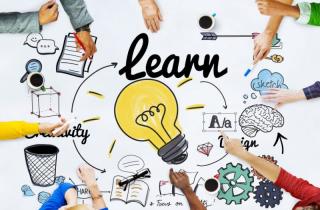The Low and Middle Income Countries Research Network (LMIC) held its first workshop to identify innovative approaches to doing knowledge exchange using remote technologies. The event took place on the 29th of April and brought together 43 academics working in the Global South including early career researchers and post-graduate students. The workshop combined presentations from research projects and project partners with discussions in breakout rooms to share experiences and identify replicable stakeholder engagement strategies.
Dr Srabani Maitra, Senior Lecturer in the School of Education introduced the workshop goals and format to participants. She also highlighted the need to find new pathways and contact points to promote scholarly exchange and address the challenges generated by the pandemic. The introduction was followed by a set of two presentations. The first presenter was Dr Raul Valdes-Cotera from UNESCO who outlined the knowledge exchange strategies implemented by the UNESCO Institute for Lifelong Learning. The main lessons emerging from this experience are (1) knowledge exchange strategies should be based on strong collaborations across sectors including civil society organizations and national and local governments; (2) inequalities associated with gender, age, sexual orientation, race and ethnicity have been exacerbated requiring efforts to promote the inclusion of particular social groups; (3) the impact on people’s mental health can limit their ability to engage and learn; (4) given the difficulties in access to technologies online platforms must be combined with other types of engagement tools.
The second presentation was given by Dr Kaustuv Bandyopadhyay Director of Participatory Research Asia (PRIA) and focused on conducting participatory research using digital technologies. The main recommendations to researchers were: (1) use technologies that are familiar to participants, (2) triangulate data collected through different online platforms, (3) create smaller discussion spaces and use moderators to facilitate interactions, and (4) promote more active participation through simulations, role-playing and gamification. Workshop participants then joined preassigned breakout rooms to discuss the presentations and their own experiences.
Later participants reconvened for the final set of presentations which began with Prof Charles Nherera from the University of Zimbabwe. His presentation emphasized two key challenges. The pandemic has significantly reduced opportunities for informal interactions and networking which are crucial for building relationships. Furthermore, access to technology can be very costly to both researchers and communities limiting their ability to participate in online spaces. Capacity development strategies are therefore needed to ensure that all stakeholders can shift to digital spaces. It is also important to capitalise on social media which are widely used and do not require expensive licenses.
The next presentation was given by Prof Mario-Delos Reyes from the University of the Philippines. He also underscored the need for investments in online training and the provision of software and equipment to researchers and partners. His research team used Facebook to engage with neighbourhood residents which proved an effective strategy to promote participation from a wide range of actors.
The final presenter was Dr Barbara Read from the School of Education. The presentation explored the challenges faced by her research project such as delays in fieldwork and face-to-face events. The project has developed online surveys in order to continue the data collection process in the pandemic. Workshop participants subsequently joined breakout rooms to discuss and agree on key takeaways to be presented to the wider group. The main points identified were:
- It is essential to provide training opportunities for researchers to conduct online data collection;
- There are data protection and ethical concerns that must be addressed before adopting online tools;
- Projects must provide capacity development to partners in order to expand online engagement and (4) research teams must be aware of gender inequalities in access to technologies.
The workshop closing remarks were made Prof. Michael Osbourne also from the School of Education who thanked attendees and summarised the central themes explored during the event.
Running sports | Concepts Nike Kyrie 7 Horus CT1135-900 Release Date - SBD
- Log in to post comments













Latest Comments